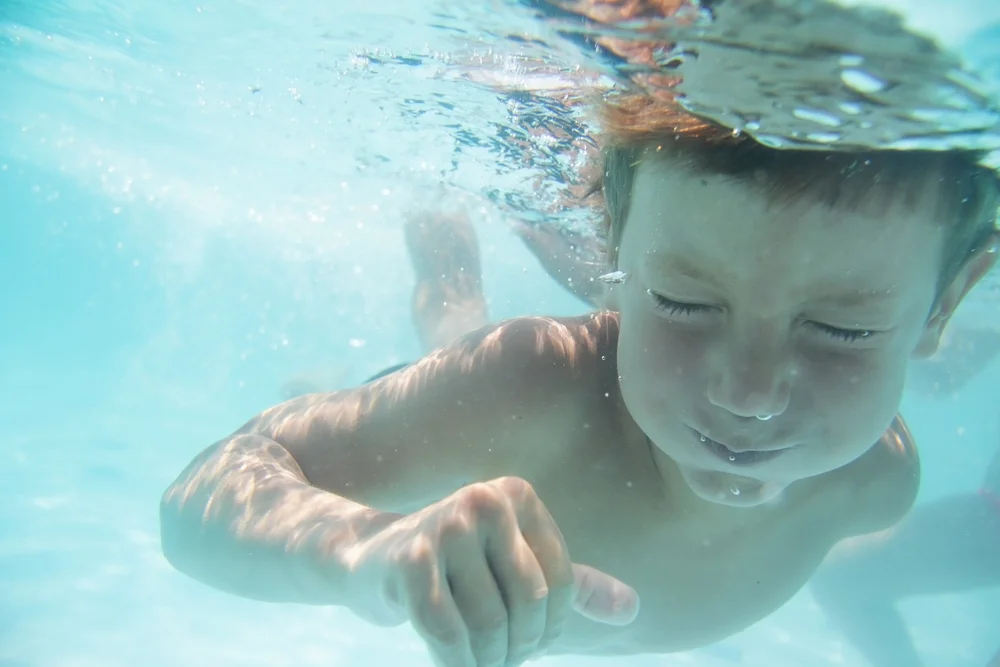Autism wandering and 6 ways to prevent it
It's a busy time of the year full of gatherings with family and friends, and various community events that could have you out and about, and not always able to pay attention to your loved one with autism spectrum disorder (ASD) every second of the day. With that being said, it's important to be cognizant of Autism wandering, or the likelihood for it if you have a loved one with ASD who will be gathering with you this time of year. According to a study published in the Pediatrics journal, nearly 50% of children over the age of 4 with ASD have wandered from a safe, supervised space. Of those who wandered, over 50% went missing for a long enough period of time to cause concern, and a majority ended up in extreme danger. The most common dangers those with ASD who wandered faced were traffic injuries and drowning. Autism wandering is more of an indication of a child's nature of ASD symptoms rather than a sign of negligent parenting. And since the holidays oftentimes create opportunities for an increased likelihood for wandering, it's important to take measures to help keep your loved one with autism safe and to help prevent wandering. And so with that, here are six tips for preventing autism wandering.
Take Extra Measures to Secure Your Home
It's important to have a secure home that prevents your loved one from wandering. Deadbolts are helpful, as well as a security or alarm system. A security or home improvement company may be able to help you identify all points of escape and take appropriate measures. Hook locks that are above your child's reach are also helpful. You may also want to fence in your yard, and place stop signs on all windows and exits.
Understand Your Child's Goals and Triggers
It's important to understand your child's behavioral patterns as they pertain to wandering. Does he/she escape to relieve anxiety or disappointing situations? Do crowds make your child want to run away? Is your child focused on going to a specific place or doing a specific activity this time of year? Or does he/she have a favorite place? It may be soothing for your child to retreat to their special place in the midst of holiday festivities when feeling overwhelmed. Planning ahead for this can also be beneficial.
Look Into Tracking Devices and ID Bracelets
If your loved one has a history of wandering, or you suspect it may be likely, it can help to place a tracking device on the child, or at least an ID bracelet so that he/she can be identified should wandering occur. Project Lifesaver or LoJack SafetyNet services can be used, as well as GPS tracking services. An ID bracelet is also beneficial as it will state your contact information, the fact that your child has autism, and if he/she is mute. If your child refuses to wear a bracelet around the arm or ankle, there are temporary tattoos that may also suffice.
Teach Your Child About Safety and How to Swim
It may help to enroll your child in swimming lessons to help eliminate the threat of drowning, the leading cause of death for those with ASD. Teaching safety can also help your child become more cognizant of the dangers wandering can bring. The YMCA offers special swimming classes for those with ASD, and there are likely other organizations in your area that may offer the same. Visuals, stories, and stop signs can help children learn about safety, and what to do should they ever find themselves lost and out of their safe zone.
Alert Friends, Family, Neighbors, and First Responders
It's important for those who are around your child's general vicinity, or who are hosting an event where your child will be in attendance of the possibility of wandering. This way multiple eyes can be on the lookout, and extra security measures can be taken. Introducing your child to neighbors can also help prevent dangerous wandering. First responders who are privy to this behavioral pattern can also help improve response times from local authorities should wandering occur in a way that brings potential harm to your child.
Communicate With Your Child's School
Should your child have a history of wandering, his/her IEP should address this to ensure extra support and education surrounding wandering prevention and safety can be implemented at school. Having everyone up to speed and on board with addressing this behavior and working toward eliminating it is most beneficial for everyone involved.
Autism wandering is a serious threat to the safety and well-being of half of the ASD population. Even if your child has never wandered, the holidays can bring certain triggers and stressors that your child may not be exposed to throughout the rest of the year. This is why it's important to ensure safety measures are taken, and that your child understands the risks and what to do in order to stay safe. With the extra stress the holidays can bring to everyone each year, having a game plan in place can help alleviate any extra stress or anxiety for you and your family. Should you seek extra support for your child to help prevent wandering, autism treatment, ABA therapy, or extra support for your family, we welcome you to reach out to us and learn more about the services Big Sky Therapeutic Services provides.


